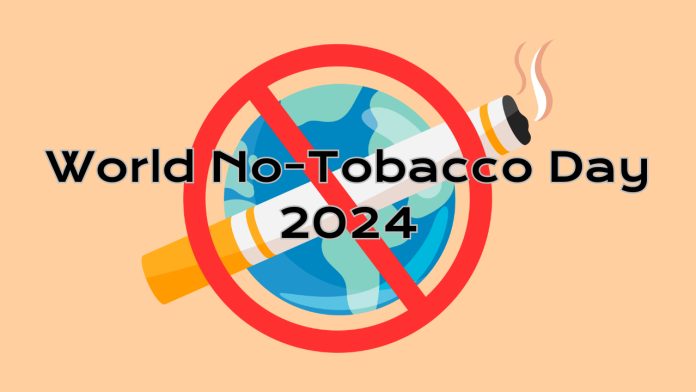A Call to Protect the Environment and Public Health
Every year on May 31, the global community unites to observe World No Tobacco Day, an initiative led by the World Health Organization (WHO) to highlight the health risks associated with tobacco use and to reduce tobacco consumption with effective policies. In 2024, the theme focuses on the profound environmental and health impacts of tobacco production, consumption, and waste.
The Environmental Impact of Tobacco
The lifecycle of tobacco, from cultivation to consumption, poses significant environmental hazards:
1. Deforestation and Land Degradation:
Tobacco farming is responsible for the deforestation of approximately 200,000 hectares of land annually. This deforestation not only destroys natural habitats but also contributes to soil degradation and loss of biodiversity. The intensive farming practices required for tobacco cultivation often involve heavy use of pesticides and fertilizers, which can contaminate soil and water sources.
2. Water Usage:
Tobacco farming is a water-intensive process. It is estimated that producing just one cigarette consumes about 3.7 liters of water. In regions where water scarcity is already a critical issue, the diversion of water resources to tobacco farming exacerbates the problem, impacting both human communities and local ecosystems.
3. Tobacco Waste:
Cigarette butts are the most commonly discarded waste item worldwide, with an estimated 4.5 trillion butts littered annually. These butts contain toxic chemicals, including nicotine, arsenic, and heavy metals, which can leach into soil and waterways, posing threats to wildlife and water quality.
Public Health Concerns
Beyond the environmental impact, tobacco use remains one of the leading causes of preventable death globally. According to WHO, tobacco kills more than 8 million people each year, including over 1 million non-smokers exposed to secondhand smoke. The health consequences of tobacco use are well-documented, including:
1. Respiratory Diseases:
Smoking is a major cause of chronic obstructive pulmonary disease (COPD) and lung cancer. Secondhand smoke exposure also increases the risk of respiratory infections and asthma in children.
2. Cardiovascular Diseases:
Tobacco use significantly raises the risk of heart disease, stroke, and peripheral vascular disease. Smokers are twice as likely to suffer a heart attack compared to non-smokers.
3. Cancer:
Beyond lung cancer, tobacco use is a major risk factor for cancers of the mouth, throat, esophagus, pancreas, bladder, and more.
Global Initiatives and Advocacy
World No Tobacco Day 2024 calls for concerted action from governments, organizations, and individuals to address both the health and environmental impacts of tobacco. Key actions include:
1. Implementing Stronger Tobacco Control Policies :
Governments are urged to adopt and enforce comprehensive tobacco control measures, such as higher taxes on tobacco products, bans on tobacco advertising, and plain packaging laws. These measures have been proven to reduce tobacco consumption and save lives.
2. Promoting Public Awareness :
Education campaigns that highlight the environmental and health risks of tobacco can help shift public perception and reduce demand. Schools, communities, and healthcare providers play a crucial role in disseminating this information.
3. Supporting Tobacco Farmers in Transition:
Helping tobacco farmers transition to sustainable and economically viable alternatives is essential. Programs that provide training and financial support for alternative livelihoods can reduce the environmental impact of tobacco farming and improve the economic stability of farming communities.
4. Encouraging Smoking Cessation:
Providing access to resources and support for quitting smoking is vital. This includes offering counseling services, nicotine replacement therapies, and creating smoke-free environments.
Individual Actions
Individuals can also contribute to the goals of World No Tobacco Day by:
– Quitting Smoking:
Seeking help to quit smoking not only improves personal health but also reduces the environmental footprint associated with tobacco production and waste.
– Avoiding Littering:
Properly disposing of cigarette butts and educating others about the environmental harm caused by tobacco waste can help mitigate pollution.
– Advocating for Change:
Supporting policies and initiatives aimed at reducing tobacco use and its environmental impact can drive broader societal change.
World No Tobacco Day 2024 serves as a powerful reminder of the dual impact of tobacco on our health and the environment. By taking collective action, we can create a healthier, cleaner, and more sustainable world. Let’s seize this opportunity to make a difference and inspire lasting change.





